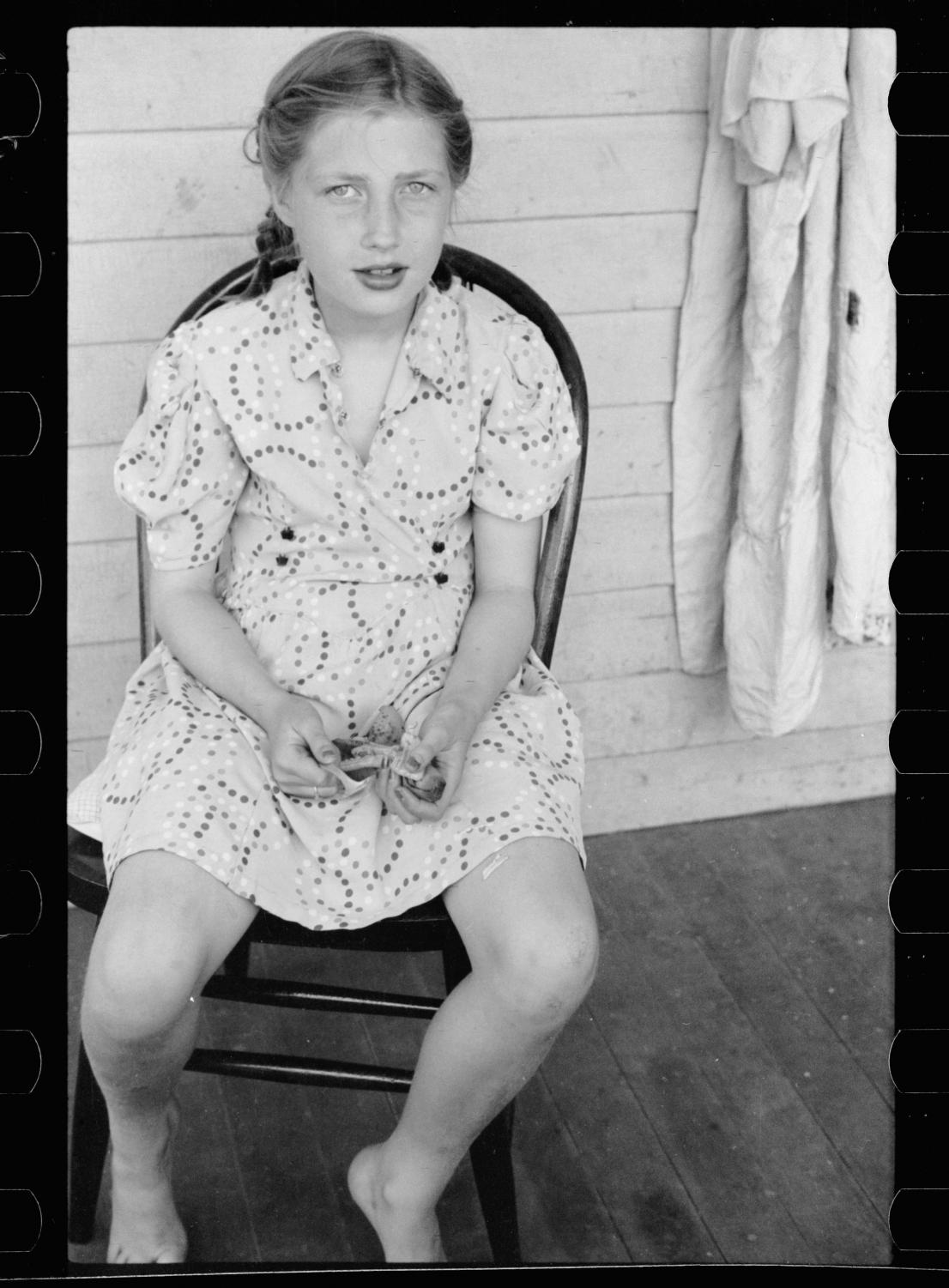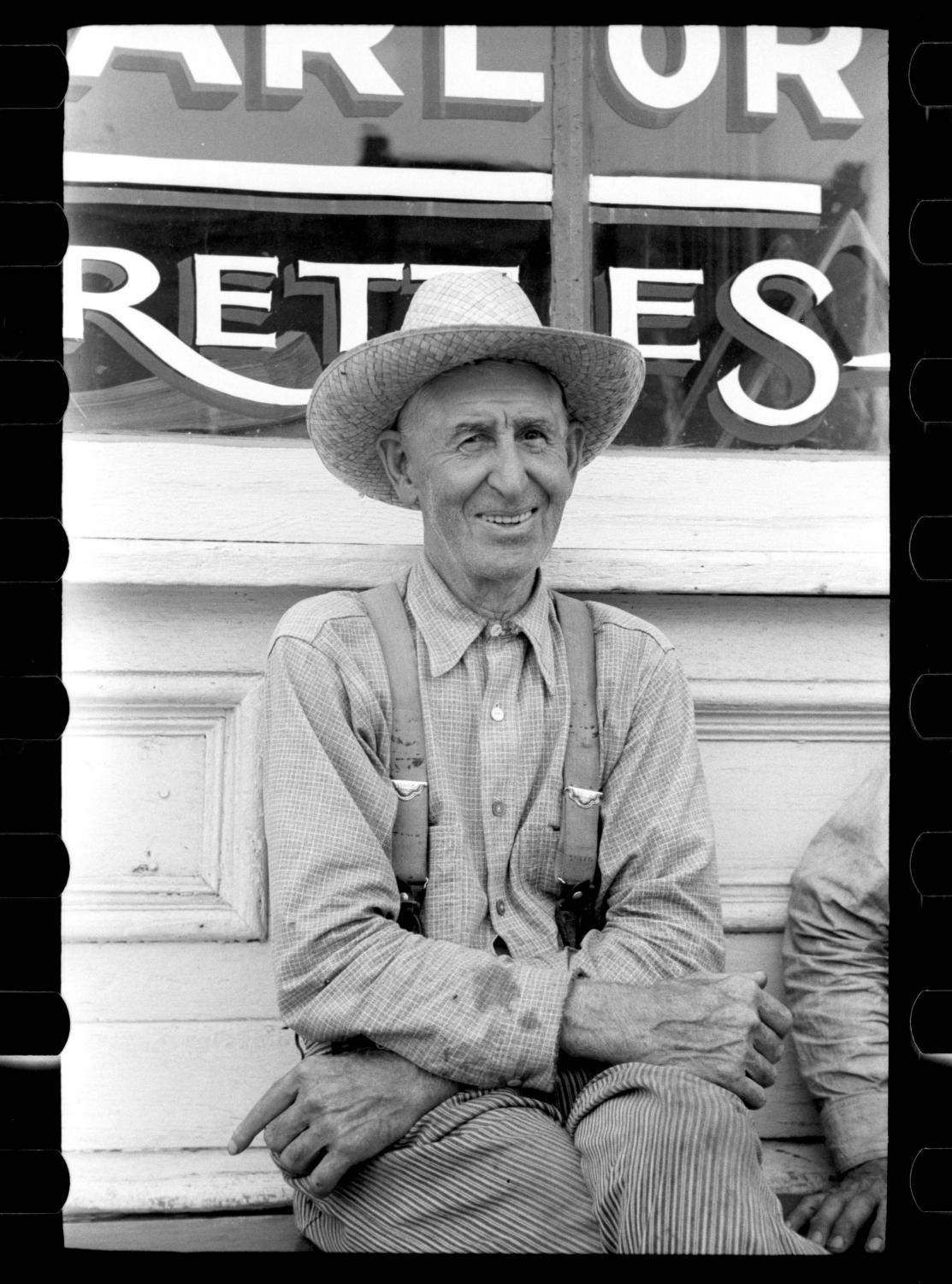UNI professor organizes photo display
May 2, 2019
“Barefoot and gingham dress on the front porch—it doesn’t get more classic than that,” said Philip Hopper, UNI Assistant Professor of Communication Studies, while admiring a black and white image of a young American girl from the Depression era (pictured right).
The young girl is one of the sixteen photographs that Hopper selected for the Rod Library display case. The images will be there May 2 through June 1.
These photos were taken between the mid-1930s and mid-1940s as part of the Farm Security Administration’s (FSA) efforts to fight against rural poverty during the Great Depression. Each photo features people and places affected by that poverty.
Today, the negatives from these black and white photos—over 175,000 in all—form the Farm Security Administration/Office of War Information Collection that resides in a Library of Congress archive. Students of UNI Professor of Communication Studies Bettina Fabos worked on digitizing some of these negatives as a class project. Originally, the photos were going to be put into Fortepan Iowa, a digital archive of photos that tell the stories of average, everyday Iowans in the nineteenth and twentieth centuries. Fabos is one of the founders of Fortepan Iowa.
Because of Hopper’s involvement with Fortepawn Iowa, he was asked to look through the FSA photos.
“Subsequently, Fortepan decided that because there were some professional photographers involved that they didn’t really want to use the photographs, but I’d already fallen in love with them,” Hopper said. “I think these photographs are great. They’re a real slice of Mid-twentieth century American rural life.”
After finding out that the library display case was available, Hopper volunteered the Department of Communication Studies. The Art Department printed the photos, and Rod Library Learning Commons Coordinator Gail Bunz and Library Assistant II Julie Ann Beddow also helped make the display a reality.
Although the FSA took photos from all over the Midwest, the collection prominently features Iowa. Many of the images were taken in a modest town on the Des Moines River, according to Hopper. There are also photos from the Iowa State Fair, including some from a horse show.
“The expression on this man’s face as he leads his prize horse by the judges is just, he knows he’s going to win,” Hopper said with excitement. “He’s got the prize stallion. He’s got it.”
Many of the photos in the overall FSA collection feature fields and building, but the ones Hopper finds the most compelling are those with people. The display will only feature images with human subjects.
“I think that we can learn a lot about history by looking at photos that aren’t of famous people and famous events,” Hopper said. “So these photos are about everyday lives, everyday people, and I kind of feel like that’s important.”
According to the display monograph, there is only one image in the FSA collection that features an African-American. Because of this, Hopper thought it was important to also include images that were taken post-World War II in the display, as they show more people of color.
As an award-winning photographer himself, Hopper admires the talent behind the photos.
“They’re taken during the era of black and white photography,” Hopper said. “What you see in these photographs from an aesthetic point of view is a sensitivity to tonal gradation, tonal variation. That’s how you tell a story with black and white, right? There has to be a range of tones and if these photos don’t have a range of tones, there’s a reason.”
Ultimately, Hopper hopes that when people look at the photos they recognize that although these photos come from a different time, the people and places in them should still be familiar. They are not so different from people and places today.
“I think the commonplace is as important as so-called important people and important places,” Hopper said. “I think the commonplace is something we really need to really think about and look at.”
For the complete collection of images, go to the Library of Congress’ website and search for “Farm Security Administration Iowa.”












Jacqueline Taylor Basker • May 4, 2019 at 3:53 pm
Wonderful article! We need to preserve our heritage especially the creative work done by the FSA. and the other government supported writers and artists! Kudos to Prof. Phil Hopper!